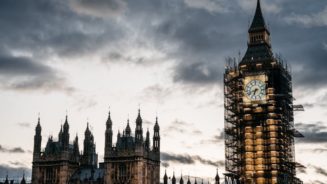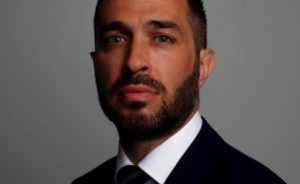John, why have you stopped doing the UK role so soon after taking it up and instead focusing solely on the international operations as executive chairman?
John Van Der Wielen: My role initially, circa three years ago, was to head up the international division, which then consisted of AmLife, FPB in Germany, Lombard International in Luxembourg and, of course, Friends Provident International.
During that time and at strategic review you’ve seen the outcomes, which is we’ve exited Germany, sold Am-Life and the Lombard business.
That gave me time to be able to help Andy Briggs and the group team to restructure the UK, complete a strategic review and get it operating in a very positive fashion, which I’ve achieved.
As an individual, I’ve always been more motivated by the international side, and I come from a broad international background.
I really want to finish off the job that I started, and I made the personal decision to step back into the Friends Provident International business full time and help take it through its next phase.
Internally, I have made a personal commitment to the people here as well, that I’m now fulltime focused on Friends Provident International.
I have a couple of months’ work left to complete with the Lombard deal. I have been asked by Blackstone to remain on the board of Lombard as an independent nonexecutive and I will continue to do that. Interestingly, when I sold the AmLife business I was also asked to stay on the board.
What are your specific responsibilities as executive chairman?
JVDW: I see it as being very similar to being the CEO of International and being a hands-on person in the business.
I think to take Friends Provident International through this next phase, it needs someone who is, at the macro level, very strategically focused, and positions the company well as we roll-out the new platforms.
We’re about to process new business on the new system. We’ve spent £35m to get that up and running.
I think it needs more of the very macro, strategic approach to taking the business through the next steps. I’ve now set up the regions and that allows me to fulfil more of a chairman capacity than a CEO.
There were a notable number of high-level departures at FPI during the past year, including Middle East and Africa general manager, Matt Waterfield; general manager for Hong Kong, David Knights and Isle of Man general manager, director and head of international governance, Jonathan Hall, who have all gone off to competitor life companies. Why do you think this has been the case?
JVDW: There are no excuses for either the cultural and strategic change FPI needed to go through.
As examples, we’ve been open in talking about our exit from Germany which was losing this company a lot of money, and the fact that we found ourselves in Japan with inappropriate licences.
The way in which we approached the past compared to the future is that we are far less UK-centric. That doesn’t mean that I’m not disappointed to lose good people, just that companies go through a change period. Matt Waterfield, for example, who I have a great working relationship with, had spent a lot of time in the Middle East and he wanted to bring his children back to the UK for education. I wish him sincerely all the best as I do with David Knight and the others.
It’s more about a cultural change than anything negative or sinister.
The calibre of people like James Tan, managing director in Hong Kong and Marcus Gent, the new managing director of the Middle East, are very experienced senior executives who are the right people to take the company through the next phase.
Turning to FPI’s half-year results, they revealed a drop in sales by a third compared to the previousyear, from £47m APE to £17m. Can you explain headline reasons for this?
JVDW: I’ll be the last person to tell you that I’m celebrating the first half-year’s results. The results are disappointing, but not unexpected.
I’ve been very candid about the fact we have several phases for this business to go through. One was de-risking, and another was making sure that our products were distributed the right way.
The second phase was fixing. We were still operating off what we believe to be the oldest operating mainframe in the UK. This is a negative rather than proud statement, and for many years past management at Friends Provident International underinvested in technology. So this turnaround and a lot of what we needed to do to succeed related to technology.
We have not released new products in the past two years because we’re rolling out the new platform. Our old technology meant that access in Hong Kong and Singapore during their normal business hours was extremely difficult. I am pleased to say all that has now been nearly fixed. We started processing new business in the Middle East in September on the new system.
What were the specific reasons for the downturn in different regions?
JVDW: The unit-linked downturn in Asia, and we’re a part of that market, combined with FPI not developing new products. I’m really pleased to say recovery in the summer has been quite rapid. We will have a range of new products for next year once we’ve migrated the existing portfolio on to the new system. The new GN15 guidance that’s come out in Hong Kong is a really good outcome, just like RDR in the UK.
The final point is that we’ve implemented very strong guidance on jurisdictions. Where we will write business, how we write business and from what countries and that’s been implemented from January 2014.
The jurisdictional review is principles based on how we service expatriates around the world and how we write cross-border business that doesn’t put the company regulators or licensers at risk and that’s really important. There’s still an element of the offshore market that I believe are pushing into high risk territory in the way they write business across different jurisdictions.
Has that resulted in any exits from specific jurisdictions, and is that public?
JVDW: Yes, it has, and no, it’s not public.
Is it the underlying profitability of the business you’re looking at rather than certain sales indicators?
JVDW: We still want volume, but we go for value, not volume. In the past, Friends Provident looked at the APE and sales volume only. You need value and volume, and value comes first and volume second.
If you can get both value and volume, that’s the ideal company, but volume alone doesn’t speak for success.
We’re happy with the underlying profitability of the business. Notably, our funds under management continue to be net inflow. There’s no use selling a policy and recording it as APE and seeing it fly out of the back door in 12 months’ time.
We’ve also got a very good strong back book of business, between 70-80% of profit is produced there.
What about the Middle East where the APE was down 20%?
JVDW: The recent licensing regime of the Free Trade Zone versus the full branch licences has been a fantastic outcome for Friends Provident International. We have waited for many years for the regulator in the Middle East to enforce its regulation and there are many competitors in the Middle East that wished they had a licence like ours and we are seeing the results of that come in very quickly. So, the Middle East looks exciting for us and I expect the second half to be very strong.
For a long time, we’ve almost been at a competitive disadvantage because the other providers have got the same volume of business as we have, but they haven’t had the same licence, therefore they haven’t had to have the same regulatory requirements.
Therefore the enforcement by the regulator now puts those legitimate providers on a strong footing, and I’m really pleased to see that the appropriate regulations are coming into place.
What FPI have done extremely well in the past is in having four very valuable long-term licences, in Hong Kong, Singapore, UAE and the Isle of Man.
Can you comment on reports by analysts and in the media that Friends Life has hired Goldman Sachs to find a buyer for FPI?
JVDW: We never comment on any M&A speculation. We do know that the majority of the speculation naturally relates to the fact that we’ve sold Lombard and several analysts have written in their reports that selling FPI would be a good next step. So, we know where the speculation comes from. It’s been continued over the past three years and I won’t add any further comment.
So, can you rule out a scenario in which FPI is sold next year?
JVDW: In corporate life, one thing I’ve learnt is that you can never rule out any scenario and we’ve always said as a responsible shareholder, we are not emotive about any one asset that is part of the Friends Life group. We’d always act responsibly for the benefit of the shareholders and policy holders, so no, you can never rule anything out.
As far as the ethos of the whole business is concerned, how would you characterise that in terms of helping us to understand the strategy of FPI going forward?
JVDW: Friends Provident International is a major turnaround, a five year time frame. We’re three years in which means we’re past halfway. Everything we’ve achieved so far has been genuinely expected and it’s important to note we paid a £20m dividend last year, which is the first dividend in the history of the company.
We still have very healthy cash buffers that are affected slightly by currency for the first half.
Our ethos and commitment hasn’t changed in the turnaround and there is still a lot of work to do in the next 12 months, but we believe that will deliver some really good results. I look forward to presenting the next six months’ results to you and you can ask me the same tough questions.




